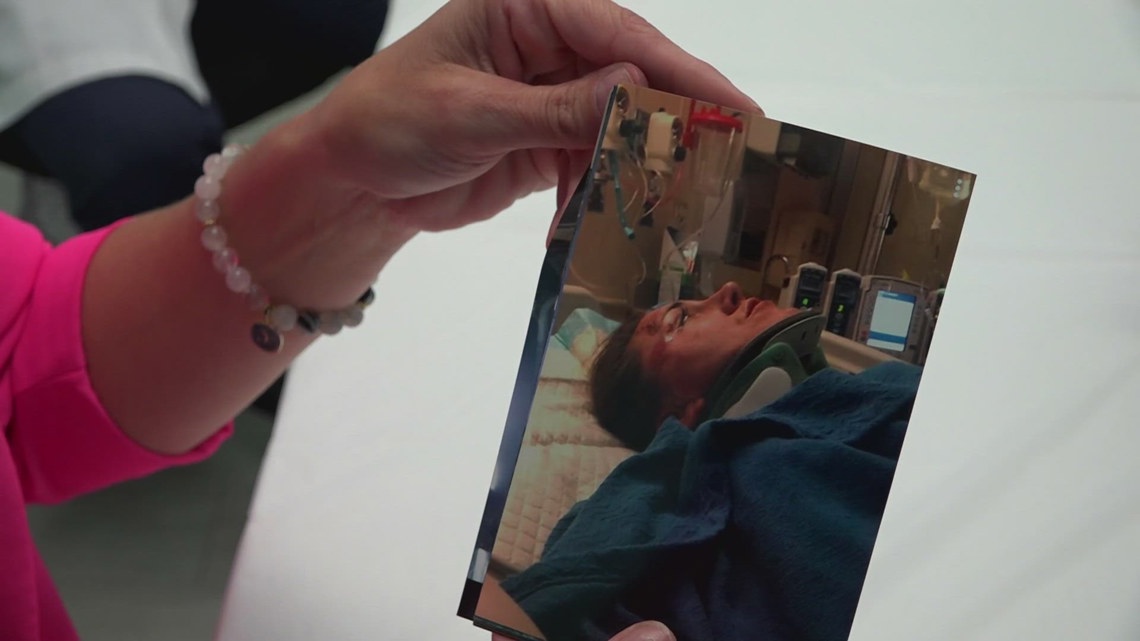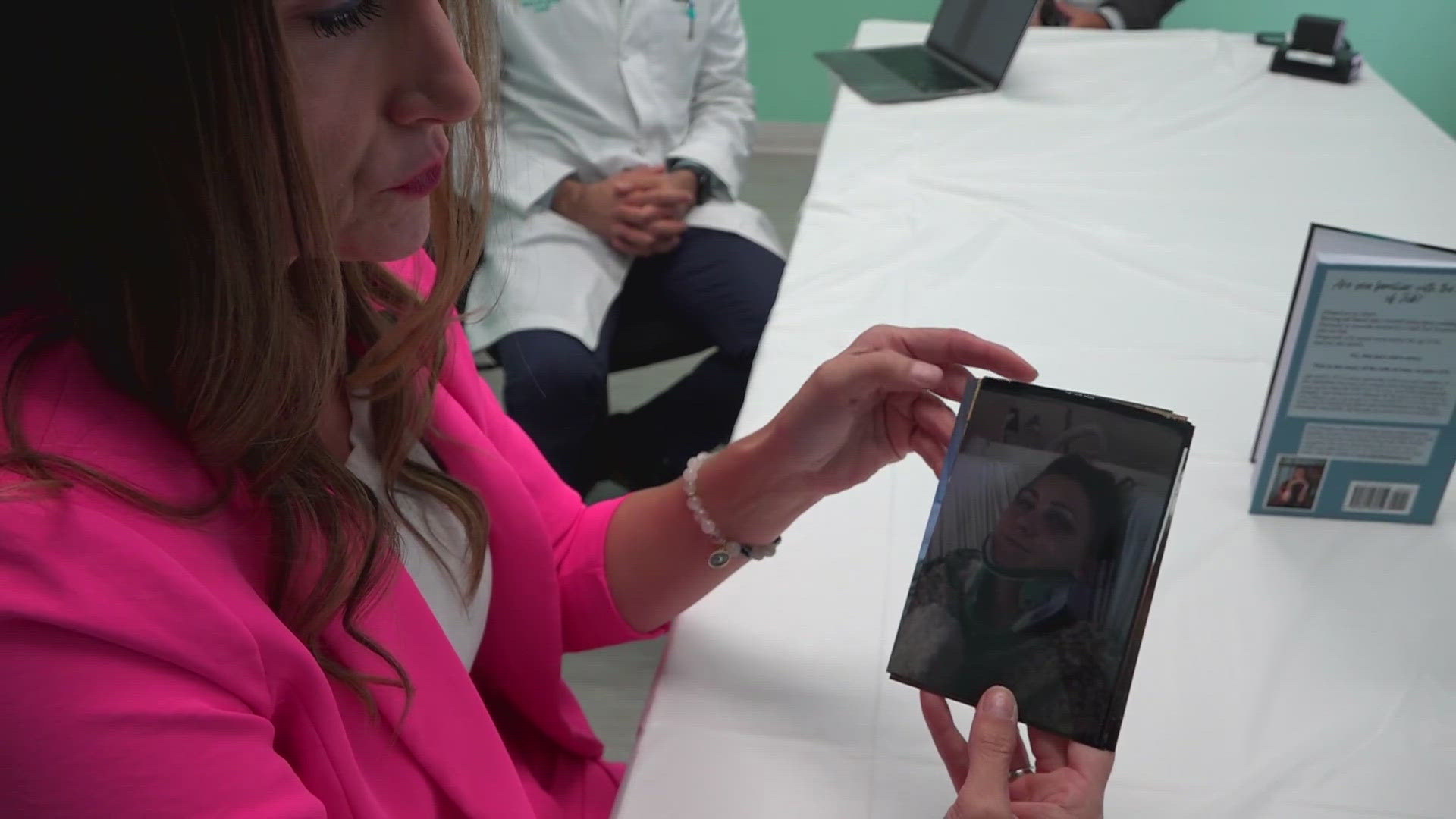JACKSONVILLE, Fla. — “I was unconscious for 10 minutes, they thought I was dead,” said Lisa Heath while sharing pictures of the aftermath of her golf cart accident.
Although the bruises and scars have fully healed, she says she will never feel normal.
“It’s constant, and you feel it beating in your head,” Heath added.
Heath’s doctor diagnosed her with a mild concussion, something she thought would heal on its own.
“I didn’t learn I had a traumatic brain injury until two and a half years later,” said Heath.
The constant migraines, mood swings and memory loss were ruining her life; all symptoms of a traumatic brain injury (TBI) that Heath and other patients get used to living with.
TBIs are more common than you may think.
The Centers for Disease Control and Prevention (CDC) estimates that 2.5 million people sustain a TBI annually. In 2021, TBIs were responsible for over 69,000 deaths in the United States.
Not only are patients sometimes unaware of how common TBIs are, but according to neurologist Dr. Syed Asad, he’s seen many patients like Heath who had no idea they were living with one.
“The classification system is relatively old and if you don’t lose consciousness or either lose consciousness for less than 30 minutes,” then it’s considered a mild brain injury, Asad said.


The most likely cause of a TBI is falling, and it's the leading cause of death and disability for children and adults aged one to 44.
From a concussion to a severe level injury that leaves a patient in a coma - all are classified as a TBI, and can do serious damage if undiagnosed, even if it’s considered mild.
“Essentially, when you're classified as a mild brain injury, and then that word mild is what leads to people dismissing it or telling the individual that you will be fine while it was a serious injury and not realize there could be serious consequences,” Asad explained.
Long-term consequences for Heath are not visible disabilities. Instead, she’s spending the rest of her life on medication that’s assisting with her brain’s basic functions and controlling her emotions.
“We talk about veterans and how they come back with these injuries but we don’t talk about the everyday person like me. I look completely normal but yet I suffer,” said Heath.
Heath is using her story to be an author and advocate for brain health, warning others about how serious a mild-level injury can become.
She’s educating others about her experience so people wear helmets or take resting with a concussion seriously - all to prevent more damage to one of the most crucial organs in the body. Heath added that it can happen to anyone, no matter the kind of accident.
“If the strongest tissue in our bodies can break, then maybe there’s damage to the softest tissues in our bodies,” said Asad.
Heath has poured her life story into a book called "Life of Lisa: Overcoming Adversity with Love and Laughter," adding she’s working on a second book to go even more in-depth about what she’s learned while living with a traumatic brain injury.

